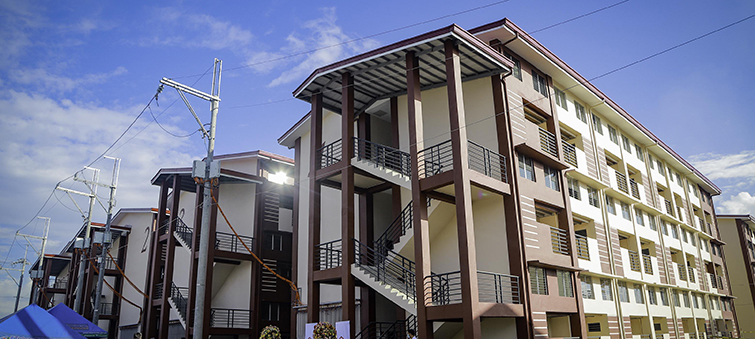Low-End Apartment Management
Running a low-end apartment management business offers a unique opportunity to provide affordable housing while maximizing returns on investment.
 Low-End Apartment Management requires a focus on efficiency, tenant relationships, and maintaining property value despite budget constraints. However, this business model presents specific challenges that require a strategic approach to achieve long-term success.
Low-End Apartment Management requires a focus on efficiency, tenant relationships, and maintaining property value despite budget constraints. However, this business model presents specific challenges that require a strategic approach to achieve long-term success.
First and foremost, successful low-end apartment management hinges on understanding the local rental market.
Owners must conduct thorough research to identify the ideal rental rates for their properties. Setting rents too high can result in longer vacancies, while setting them too low may not cover operational costs. Therefore, maintaining a balanced rental rate that appeals to budget-conscious tenants while generating consistent revenue remains essential.
In addition to pricing, effective tenant screening plays a vital role in managing low-end apartments.
Owners and managers must prioritize finding reliable tenants who pay rent on time and respect the property. Since low-end properties often attract a diverse range of applicants, a structured screening process helps identify tenants with stable incomes and good rental histories. Background checks, employment verification, and previous landlord references minimize the risk of problematic tenants, reducing potential legal issues and property damage.
Moreover, maintaining the property’s condition, even on a limited budget, is crucial for retaining tenants.
Preventive maintenance and regular inspections help identify small issues before they escalate into costly repairs. Owners should allocate a portion of the budget for routine upkeep, such as plumbing fixes, pest control, and electrical repairs. Additionally, focusing on high-impact, low-cost improvements—like fresh paint, replacing fixtures, and maintaining common areas—enhances the overall appeal of the property without breaking the bank.
To further optimize costs, leveraging strategic vendor relationships proves beneficial.
Building strong connections with local maintenance providers, contractors, and supply companies can secure discounts and priority service. Establishing long-term agreements for routine services like landscaping or cleaning often results in cost savings and more efficient operations. Furthermore, maintaining good relationships with vendors ensures timely response times, which keeps tenants satisfied and the property running smoothly.
Effective tenant communication also forms the foundation of successful low-end apartment management.
Keeping tenants informed about upcoming repairs, policy changes, and rent due dates fosters a sense of community and transparency. Managers should adopt an open-door policy, making it easy for tenants to voice concerns and provide feedback. Promptly addressing tenant complaints, especially regarding maintenance or safety issues, prevents dissatisfaction and turnover. Satisfied tenants are more likely to renew leases, reducing vacancy rates and marketing costs.
Additionally, implementing a streamlined rent collection process is essential.
Since low-end properties cater to individuals on tight budgets, offering multiple payment options, such as online payments or mobile wallets, increases convenience for tenants. This approach also minimizes late payments and ensures steady cash flow. Setting clear rent policies and consistently enforcing them creates a professional environment that encourages timely payments and discourages delinquency.
Beyond day-to-day management, low-end apartment businesses must focus on controlling expenses and maximizing profits.
Keeping utility costs in check through energy-efficient lighting, low-flow water fixtures, and weatherproofing helps reduce overhead expenses. Implementing a no-frills approach by limiting unnecessary amenities and focusing on functional, cost-effective upgrades keeps operational costs manageable. Ultimately, efficient expense management allows owners to offer competitive rental rates while maintaining profitability.
Marketing low-end apartments effectively is also crucial for keeping units occupied.
Owners should highlight affordability, convenient locations, and proximity to public transportation or employment hubs when advertising. Online platforms, social media, and community boards serve as valuable marketing tools that reach a broad audience at minimal cost. Emphasizing quick move-in options and flexible lease terms can attract tenants who need immediate housing solutions.
Navigating legal and compliance issues is another important aspect of low-end apartment management.
Managers must stay informed about local housing laws, tenant rights, and building regulations to avoid potential legal disputes. Regularly reviewing lease agreements, staying updated on rent control policies, and adhering to safety codes protect owners from fines and lawsuits. Ensuring compliance creates a stable and trustworthy environment for tenants, further enhancing the business’s reputation.
Adopting technology in low-end apartment management can significantly streamline operations.
Property management software simplifies tenant communication, maintenance tracking, and rent collection. Automated reminders for rent payments, digital lease signing, and online maintenance requests increase efficiency and tenant satisfaction. Implementing technology not only saves time but also reduces the likelihood of errors and miscommunication.
Finally, building a positive reputation is crucial for sustaining a low-end apartment management business.
Word-of-mouth referrals and online reviews influence prospective tenants’ decisions. Providing a clean, safe, and well-maintained living environment fosters positive tenant experiences, encouraging referrals and long-term occupancy. Additionally, maintaining a good standing in the community can lead to partnerships with local organizations, further enhancing the business’s growth potential.
In conclusion, managing a low-end apartment business requires a blend of strategic planning, operational efficiency, and strong tenant relationships. By understanding the unique challenges and leveraging cost-effective strategies, owners can create a sustainable business model that provides affordable housing while generating consistent profits. Effective communication, proactive maintenance, and adherence to legal standards ensure the long-term success of the business and satisfaction of the tenants.




This Post Has 0 Comments